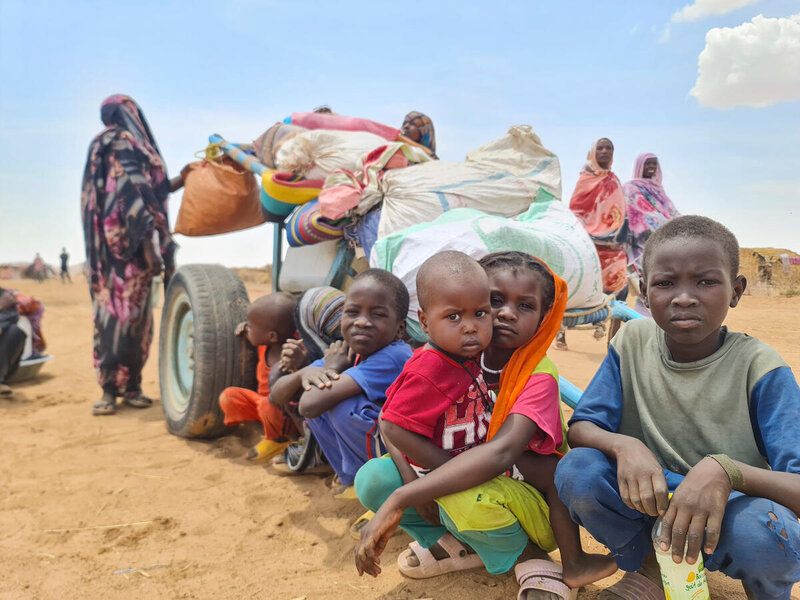21-11-2025 | di COOPI
Sudan Emergency. After the fall of El-Fasher, COOPI continues operations in Tawila
In Tawila, in the North Darfur State of Sudan, COOPI – Cooperazione Internazionale has resumed its activities to meet the essential needs of the thousands of people fleeing El-Fasher, a city where the Italian organization had been operating since 2004, ensuring—even in the last years of war—a constant supply of drinking water to more than 20,000 people in conditions of extreme emergency.
El-Fasher: fleeing widespread atrocities
The conflict that broke out on 15 April 2023 in Sudan has generated one of the world’s worst humanitarian crises: 11.7 million displaced people, 4.2 million of whom have fled to neighbouring countries. The situation dramatically worsened starting from 26 October 2025, when the Rapid Support Forces (RSF) took control of El-Fasher, the last major stronghold of the Sudanese Armed Forces (SAF) and the capital of North Darfur.
Testimonies collected on the ground describe widespread atrocities: mass killings, summary executions, abductions, arbitrary detentions, and sexual violence against women and girls. The attacks have particularly targeted ethnic groups historically subjected to persecution, including the Zaghawa, Fur, Berti, and Masalit.
To date, more than 100,000 people have fled from El-Fasher and surrounding villages. Many sought refuge to the west, facing attacks, theft, and kidnappings along the way.

Tawila on the brink: 700,000 displaced people
Tawila is a town 65 km from El-Fasher. Before the offensive of 26 October, it hosted 652,000 people—far exceeding the response capacity of local authorities and humanitarian organizations. With the latest arrivals, the town and its surroundings now hosts 700,000 displaced people.
About 74% of the displaced live in informal settlements lacking adequate sanitation facilities, and fewer than 10% have regular access to safe water. Diseases linked to the lack of water and sanitation are sharply increasing: malaria (accounts for 70% of reported disease cases), acute respiratory infections, diarrhoea, and waterborne diseases.
Access to food is also critically insufficient: 86% of families have borderline or poor food consumption levels, and projections indicate that 75% of the displaced population will remain in acute crisis conditions (IPC 3 and 4), with 5% in catastrophe (IPC 5).
COOPI’s Head of Mission in Sudan, Chiara Zaccone, explains:
Until 27 October, available aid covered only half of essential needs. The arrival of new displaced people now risks completely overwhelming the remaining basic services.
COOPI’s response: safe water, sanitation, and epidemic prevention
In this context of extreme emergency, COOPI has resumed operations in Tawila with priority interventions in the Water and Sanitation sector, in coordination with the WASH Cluster and local authorities.
Zaccone notes:
After a rapid needs assessment on the ground, COOPI worked to distribute hygiene kits as quickly as possible, begin the construction and rehabilitation of sanitation facilities, empty existing latrines to prevent contamination, and install handwashing points.
She continues:
In one of the most dramatic moments for Sudan since the beginning of the conflict, COOPI reaffirms its commitment in Tawila, as it has in El-Fasher, to ensure access to safe water, improve hygiene conditions, and help reduce the risk of epidemics in a town that now hosts one of the largest displaced populations in the country.
COOPI has been operating in Sudan since 2004, with a sustained commitment to supporting the most vulnerable communities in the states of North Darfur, Kassala, and Khartoum. In 20 years, it has carried out 129 projects, reaching nearly 4.5 million people.
Cover: COOPI Archive/2025/Gedaref




 Sudan
Sudan